Paulina Alfeus of Power Six Investment, Namibia
Mar 16, 2021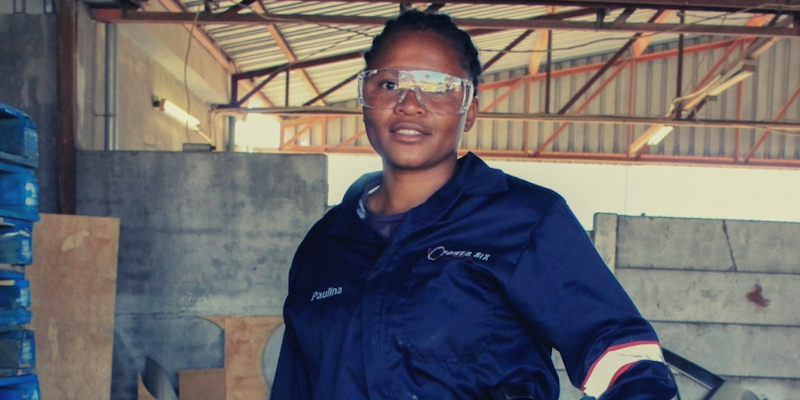
Tell us about how you got started.
Power Six Investment cc is a 100% Namibian youth owned business, by six Boilermaker artisans, three ladies and three gents. We started working on this initiative during our final year of training at the Namibian Institute of Mining and Technology (NIMT). We saw our seniors roaming around looking for employment after graduating, and it gave us a picture of what our lives after studying was going to look like. We then embarked on this journey and told ourselves that if we find it hard to find a job, then we better be in a good position to create our own jobs. We had vocational training and can design and make our own products.
When we began, we had just graduated and didn’t have any savings or startup capital. We also didn't have any product prototypes, so investors wouldn't listen to us, neither would commercial banks.
We thought about a lot of different problems that are affecting our community and tried to find ways to solve them cost effectively using our skills, and we eventually came across discarded oil barrels from around our harbour town. We also saw that people in Namibia were spending so much money on furniture imports and that the furniture they bought was made through deforestation, which is endangering our environment. That is how we embarked on this journey to upcycle oil barrels turning them into environmentally friendly furnitures.
What makes your company unique?
The fact that we are social entrepreneurs. Apart from just making profit we are solving a social problem that doesn't just affecting our community, but the whole universe. Our Company is cleaning the environment, reducing land pollution, and beautifying it with unique and colorful furniture.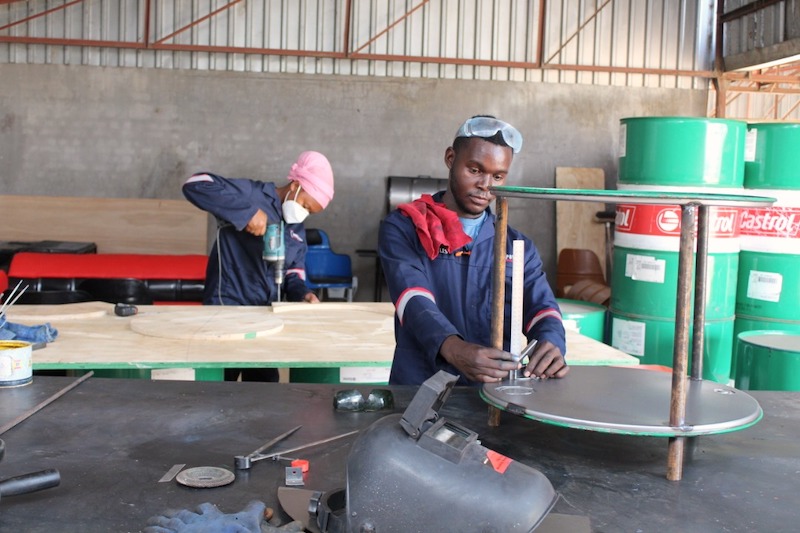
No business is without setbacks, can you tell us about a time when you faced a significant setback and how you recovered from it?
I will not talk about all of our setbacks because I will never finish, it was never easy. A business requires so much than just your presence. I will tell you about how our common invisible enemy COVID 19 almost shut us down, since we are still in our first stage of recovery. We are a manufacturing company, that is renting a work space in an industrial park, since we can’t afford a place of our own. We employed all six owners on a full time basis and we have two other people on contract. With this huge responsibility, we had to shutdown for lockdown just like other entities. We're a start up, with employees to pay, with workshop costs to cover, and no savings and no production. We depleted all the cash we had to try and sustain the business during the lockdown period. Not only that, our target market includes the hospitality industry, which was the most affected by the pandemic. The left us with no clients at all.
As we looked ahead to the end of lockdown, we realised that we would have to wait for the tourism industry to recover before we could regain our full cash flow. During this time, all our dreams where shattered, we couldn't afford to start producing with no sales guaranteed. Fortunately we received a UNDP SDGIF grant, that was introduced towards the end of 2020. We were lucky to be one of the recipients and this became our recovery aid. It stopped us from completely shutting down.
How do you define success and to what do you attribute your success?
I define success in a very simple way. I believe one is successful as soon as he or she accomplishes his or her SMART goal. In my opinion you can succeed so many times, I am a successful entrepreneur since during this entrepreneurial journey, I set so many SMART goals for myself and my team. Not all were accomplished, but most of them were accomplished.I always make sure I celebrate the successes.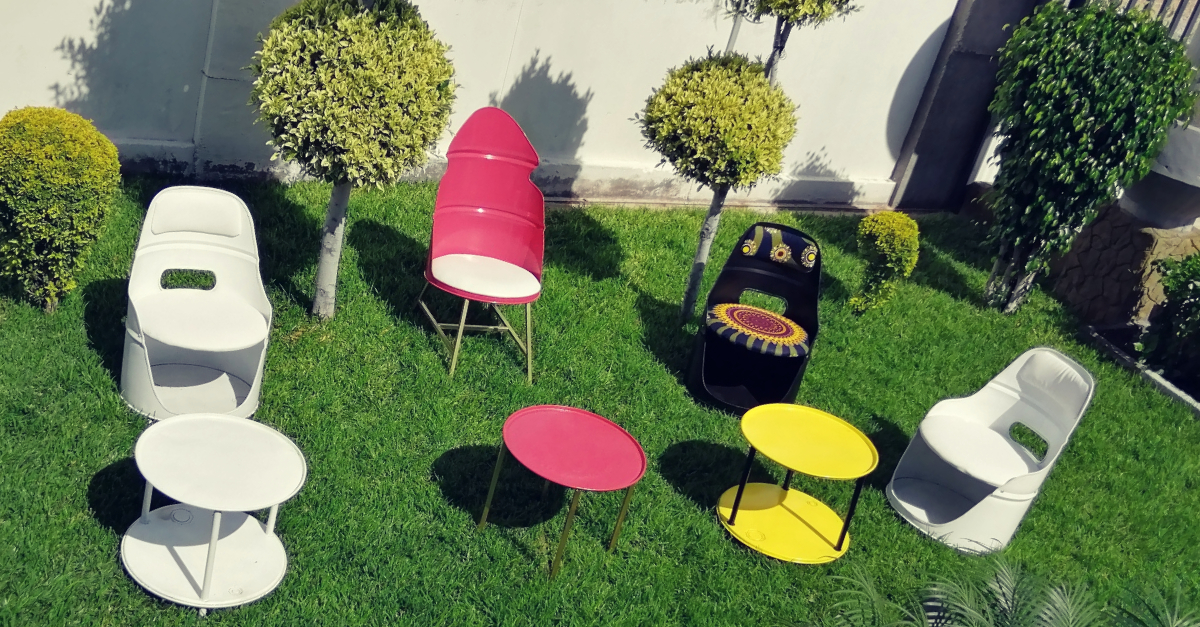
What's next for your business, what will it look like in 5 years?
We are currently manufacturing and selling our furniture from our warehouse. We are looking at increasing the production and we are looking at setting up shops countrywide.
In 5 years’ time, we are waiting on the inter Africa market, so we distribute our products throughout the continent. We are still working on getting investors from other African countries so that we partner up and expand our branches into other African countries.
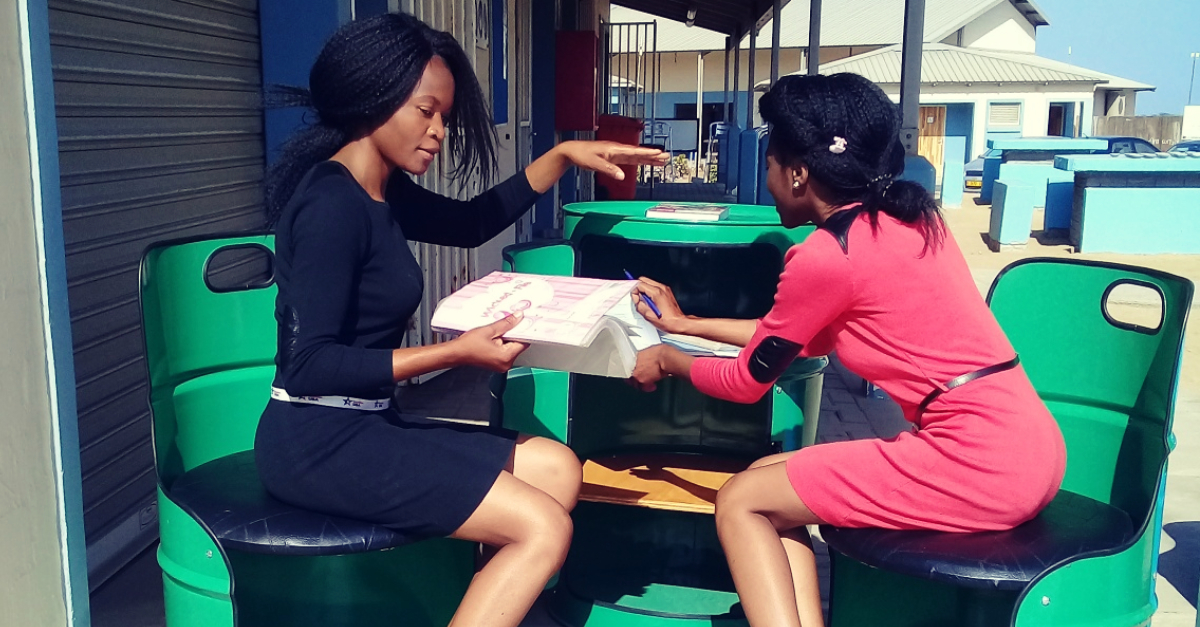
What do you think the future holds for Africa-focused entrepreneurs and advice do you have for entrepreneurs who are just starting out?
I believe the future is still bright for the African child. As Africans, we tend to be more consumers than producers, we consume so much of what is imported from other continents. We have a very large market and if we can focus on being our own producers and solve our own problems, we will be the best entrepreneurs since we know our own problems better than anyone else.
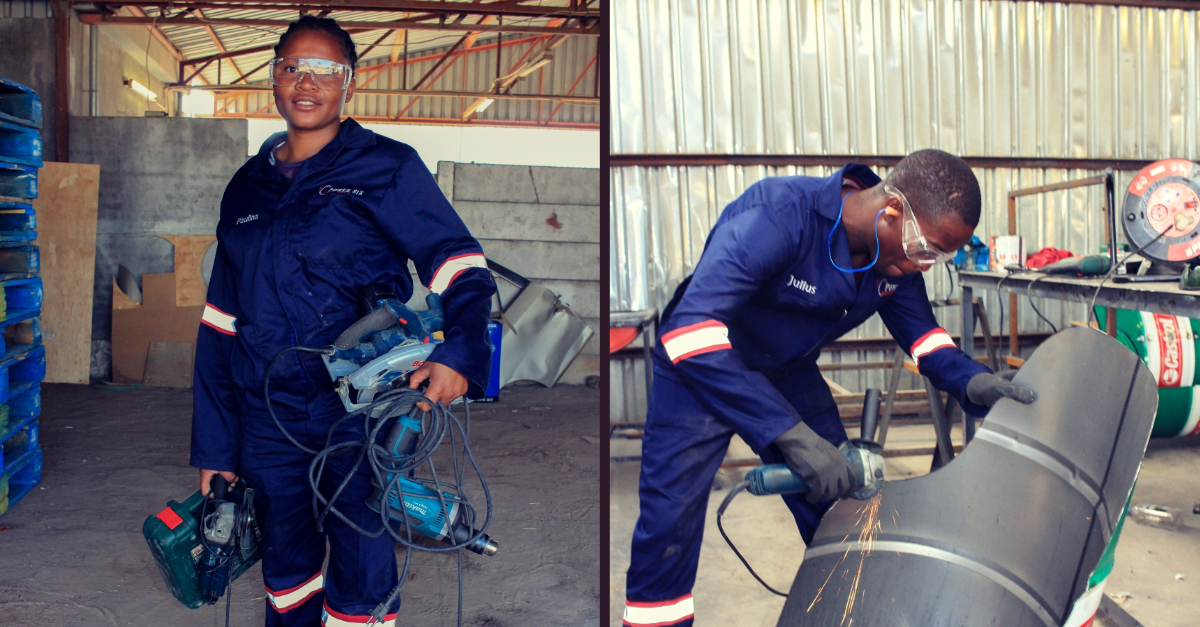
For startups, I just want to tell you that, the business industry already has almost anything you want to start now. Whatever you think of might be happening somewhere else, so choose to be unique, innovate to always stand out from the competition.
Owning a business while balancing a personal life can be challenging; how do you take care of yourself?
The main thing that I have been doing and still do is give myself a holiday. I take myself away from business work for even a week, just to relax and have fun, it might seem pointless, but it really refreshes my mind and gives me a fresh start when I return. I even come back and look at some decision I made in a different way. I also like attending events where I get a chance to network with others on business and personal growth. Networking always restore my courage.
What is your favorite quote or mantra? What keeps you going?
There's a concept that hurts me the most and I am always pushing to change it. It was articulated in a statement by Namibian Twapewa Kadhikwa when she said “Africa is exporting prosperity and importing poverty”.
What is your favorite app or a business tool that you can't live without
Sage One Accounting